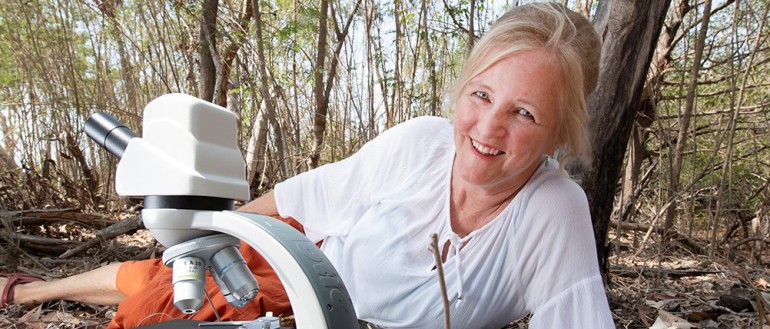Rheumatic Heart Disease (RHD) is one of the leading causes of death among young indigenous people in remote communities across the Northern Territory. The condition is defined as damage to one or more heart valves due to Acute Rheumatic Fever, caused by streptococcus bacteria, and is 100% preventable.
One researcher has at Menzies has made it her mission to tackle this problem.
During her PhD, Dr Alice Mitchell spent considerable time in remote communities only to discover that many people knew very little about RHD, its prevention and available ongoing treatment.
To give Indigenous people, particularly younger people, a better understanding of RHD, she developed, with support from Laynhapuy Homelands Aboriginal Corporation and Moonshine Agency, a free app called “Take Heart”.
“Once people know about the disease and the importance of treatment, they are very committed to the treatment,” Dr Mitchell said. “The ‘Take Heart’ app notifies users of their next injection date and sends reminder alerts.”
Recalling a case of an eight-year-old child she encountered when working as a nurse in Arnhem Land, Dr Mitchell said: “He stopped treatment thinking he was okay, he was only 20 when he died.
“Treatment is long-term and painful; it’s an injection every 21 to 28 days for 10 years. He didn’t like the treatment because it hurt.
RHD is prevalent in remote communities throughout the NT with some of the highest rates recorded in the world. Repeated exposure to strep infection can lead to acute rheumatic fever, and subsequently, RHD. If untreated, the disease causes arrhythmia, stroke and heart failure. It is chronic, disabling and fatal if left untreated.
Dr Mitchell said an estimated one in 20 children had the disease in Maningrida alone.
“This is alarming. Many only know it as ‘that heart sickness’ and aren’t aware of the importance of treatment,” she said. “There is a lot of confusion; many don’t know when or why they need an injection, particularly for such a long time and so often.
“Children as young as four have died from RHD and the tragedy is it's entirely preventable. All they know is that their heart is sick.”
Dr Mitchell graduated with a PhD at the Charles Darwin University ceremony in October this year. Her thesis was entitled “That heart sickness: Exploring Aboriginal young people’s experiences of rheumatic fever care from childhood to adulthood.”
For more information about the app and where to download it visit http://takeheart.tv/take-heart-app/

